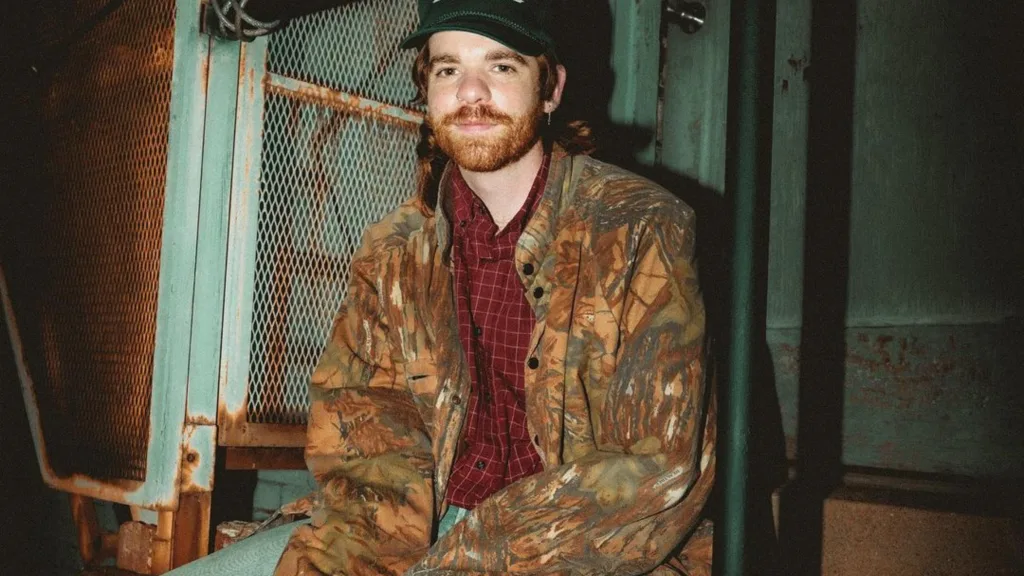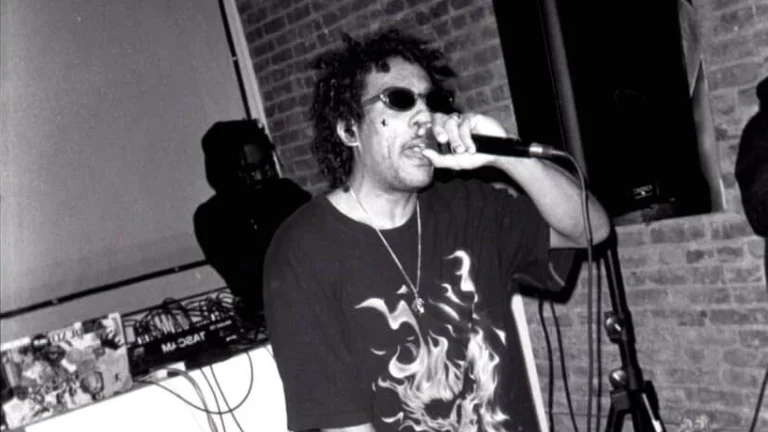Field Medic is known for a lengthy discography of folky songs about love and life, full of acoustic guitar and yearning. Released at the beginning of December, dope girl chronicles is the latest heartbreaking yet heartwarming album from Kevin Patrick Sullivan’s solo project.
The album begins with “100 ghosts,” a slow, thoughtful song heavy on strumming. This rhythm changes with the fun middle-of-the-record upbeat track, “do a little dope,” and a nice respite on the instrumental “intermission” follows. On “cemetery,” there’s more of a rock undertone, with Sullivan’s usually crystal clear voice clouded by a strong drum beat.
But “silver girl” is the real star of the album. A quietly sentimental ballad about the wonderful parts of being in love, it’s Field Medic at his best. Sullivan has an easy gift for capturing the simple beauty of intimacy: “Wish you were out here swinging with me in the winter sun / ‘cause these clouds are so silly, I got to tell someone / and I like you, so you’re who I’d tell,” he sings on “silver girl.” He depicts the whimsical parts of life—what it feels like to be in an innocent kind of love, all pleasantries and pointing at clouds.
Each of his albums has one of these ‘I’m in love with you’ songs, and they’re often standouts because Sullivan puts seemingly indescribable feelings into words. On dope girl chronicles, it’s “silver girl,” which is reminiscent of “i want you so bad it hurts” on Floral Prince (“I’m thinking about your eyes / I wanna wake up in your arms… I wanna watch you get dressed”) and “i think about you all the time” on grow your hair long if you’re wanting to see something that you can change (“I think about you often / when I close my eyes, you tumble like an acrobat, through my dreams at night / I create a life for us, a life inside my mind”).
But that loveliness is, as usual, juxtaposed by the dark tone present in most of Sullivan’s songs on this record and others. On “silver girl,” he sings, “Seems weird, I was thinking about becoming a ghost earlier that day / hey, I ain’t gonna do it, but the thought, it follows me.”
Maybe this is Field Medic’s appeal. His songs are full of both joy and sadness, both triumph and defeat, both love and hate—not unlike life. After all, his moniker comes from Ernest Hemingway’s A Farewell to Arms, which, perhaps unironically, is about love during wartime. Whether he’s singing about the best parts of love or a haunting desire to end his life, he bares seemingly his entire soul with casualness. This characteristic vulnerability, which he seems to lean into with ease, marks his music. This is, perhaps, Field Medic’s trademark.
In a 2020 article, The Fader referred to Sullivan’s music as having a “devotion to honesty,” and calling me on a Wednesday afternoon, in the midst of what he called “post-release confusion,” Sullivan didn’t shy away from this. “I just always feel like I need to say the rawest thing possible in a song—that’s the best way for me to exorcise whatever demon it is that I’m exploring in the song,” said Sullivan.
For a long time, however, Sullivan struggled with expressing vulnerability in his life. Songwriting, he said, makes him feel brave enough to say what he feels. “It still makes me nervous—every time I release something, I think that somebody is going to be like, ‘I can’t believe he would say that’—but what I hear is the opposite,” said Sullivan. “People tell me, ‘This line really resonated with me,’ or, ‘You were able to verbalize what I was feeling for me.’ It’s being able to help people through what they’re going through that’s important to me.”
He’s getting better at vulnerability, thanks in large part to therapy and sobriety, which he also credits with improving his music. Plus, he now spends the first couple hours of his day “reading, journaling, contemplating.” Sullivan’s penchant for sharing his feelings and finding connections with fans as a result bleeds into his style when playing live: for years, he played solo, backed up only by his boombox, before recently making the switch to touring with a drummer and a bassist. “Being effectively alone with fans during that time felt reflective of my music,” Sullivan said. Even though he tours with a band now, he tries to preserve that closeness from his early days. “I like playing little venues,” he added.
I had the gift of seeing Sullivan play a late-night acoustic set this summer at Hinterland, a small but magical 3-day music festival in the grassy fields of a 600-person speck of a town 30 miles out from Des Moines. Intimate, it was. He was alone on stage, playing to a small crowd seated on the grass at the end of the night on the last day of the festival. It had been a rainy day, and the fields were sopping wet, but this wasn’t a standing set. With a sort of misty, quiet air over everything, Sullivan urged the crowd to lay on their backs and look at the stars. His connection with the audience was palpable, with easy bits of conversation between songs, and fans’ love for him was equally perceptible: an almost reverent silence fell over the crowd while he sang. The experience felt dreamy, personal, sacred.
Yet he’s highly prolific, with seven LPs since 2015, not to mention the music he releases as Paper Rose Haiku, a more electronic, rap-inspired project. Due to these frequent releases, his LPs and EPs tend to represent brief snapshots, vignettes of a moment in his life.
dope girl chronicles is an interesting case, then, because it was written back in 2016, long before its release on December 1 of last year. Why did these songs lay dormant for so long? It all started as a joke between Sullivan and his audiences when he “would go into venues with nobody knowing who [he] was.” Sullivan continues, “I would do bits in between songs or play songs with ridiculous lyrics to try and get people’s attention.” He had come up with the phrase ‘dope girl chronicles,’ and started telling audiences that he had an album by that name coming out in 2023, “which, at the time, felt very far away.” Then 2023 rolled around. “I decided to make it happen,” said Sullivan. “It was fun.”





